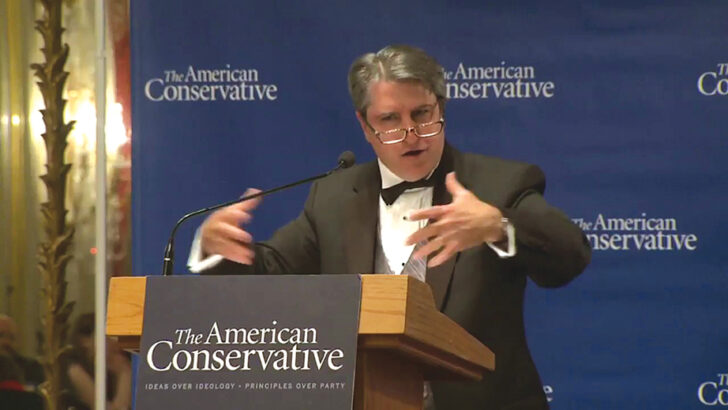Frank Litton
Regime Change: Towards a Postliberal Future, Patrick J. Deneen (Forum Press/an imprint of Swift Press, £22.00/€27.50)
Patrick J. Deneen’s Regime Change has attracted a good deal of attention. Reviewers have acknowledged his intelligence, his command of political philosophy and praised his writing skills.
But they have baulked at his conclusions, claiming that he is promoting, if not a full-blown theocracy, then at least a far greater role for religion in politics.
Certainly, Prof. Deneen, who is professor of political science at the university of Notre Dame and a Catholic, draws on the tradition of political thought rooted in the teachings of Aristotle and Aquinas. His argument for a “common good politics” need not amount to a case for the revival of Christendom.
So why this reaction? Why are committed liberals, members of the elites that dominate academia, protectors of the status-quo, frightened by this view from the margins? I think that it’s because they recognise the problems which Prof. Deneen analyses and fear that they do not have the solutions.
The various versions of liberalism whose sources can be traced to Locke, John Stuart Mill, Hobbes and Rousseau have served us well, sustaining democracy and supporting economic prosperity. But their time is up. Their solution to the ‘political problem’ no longer works.
What is the political problem? Rousseau gives us a secular version of the ‘fall’. All was going well for our remote ancestors until they discovered the ‘division of labour’. The division of labour is a curse and a blessing; a blessing because it greatly increases productivity and enhances the material conditions of existence, a curse because it generates inequalities in power and wealth, encouraging the will to dominate.
The interdependencies it delivers produce conflicts of interest that drive us apart. While we have a clear view of our immediate interests, the ‘big picture’ into which they fit is obscure.
As Prof. Deneen, following Aristotle, points out, good government, a healthy democracy, requires a ‘mixed regime’ in which a few rule constrained by the interests of the many.
The few, the elite, bring the bigger picture into harmony with the particular. They are competent in the business of balancing interests, seeking compromises, finding policies that keep the show on the road.
The link between the few and the many is vital.
For a sizeable proportion of the US electorate, the link has been broken. They voted Donald Trump into office. Mr Trump, who had no political track record, had never held elected office, and whose performance in office showed, had no competence in the formulation and implementation of policy, did have the skill to express his supporters disenchantment with and anger at the political elites. His ascendancy gives a disturbing insight into the rule of the many in the absence of an elite.
If rule by the many is bad, the rule of the few disconnected from the many is no better.
The United States becomes more and more unequal. While middle class incomes stagnate, the wealthy grow wealthier. For instance, in 2021, a US CEO earned 399 times the pay of the average worker. Between 1978 and 2021, the pay of CEOs increased by 1,460%, that of the typical worker by 18%.
The US wavers between populist revolt and the depredations of wealthy oligarchs who control the large corporations, wield enormous economic power and dominate political parties.
While we can speculate on the many causes, the neo-liberalism that guides the political elite must be a major factor. Its emphasis on autonomy that feeds into a politics of victimhood erodes a sense of national unity. The individualism that it promotes in the name of freedom is, in the end, self-defeating.
Prof. Deneen combines a Marxian diagnosis with a prescription indebted to Catholic social teaching with its focus on the common good. He reminds us of the binding force of religion. Not content to understand the world, he seeks to change it, calling for action to oust the reigning elites.
No wonder he puts the fear of God into the defenders of the collapsing status-quo.
The prognosis? I am not sufficiently acquainted with the dynamics of US politics to hazard a judgement.
The question is: how else can good government and healthy democracy be restored in the US? This, of course, is not just a question for the US. While the details differ, the same malaise is endemic in western democracies.



